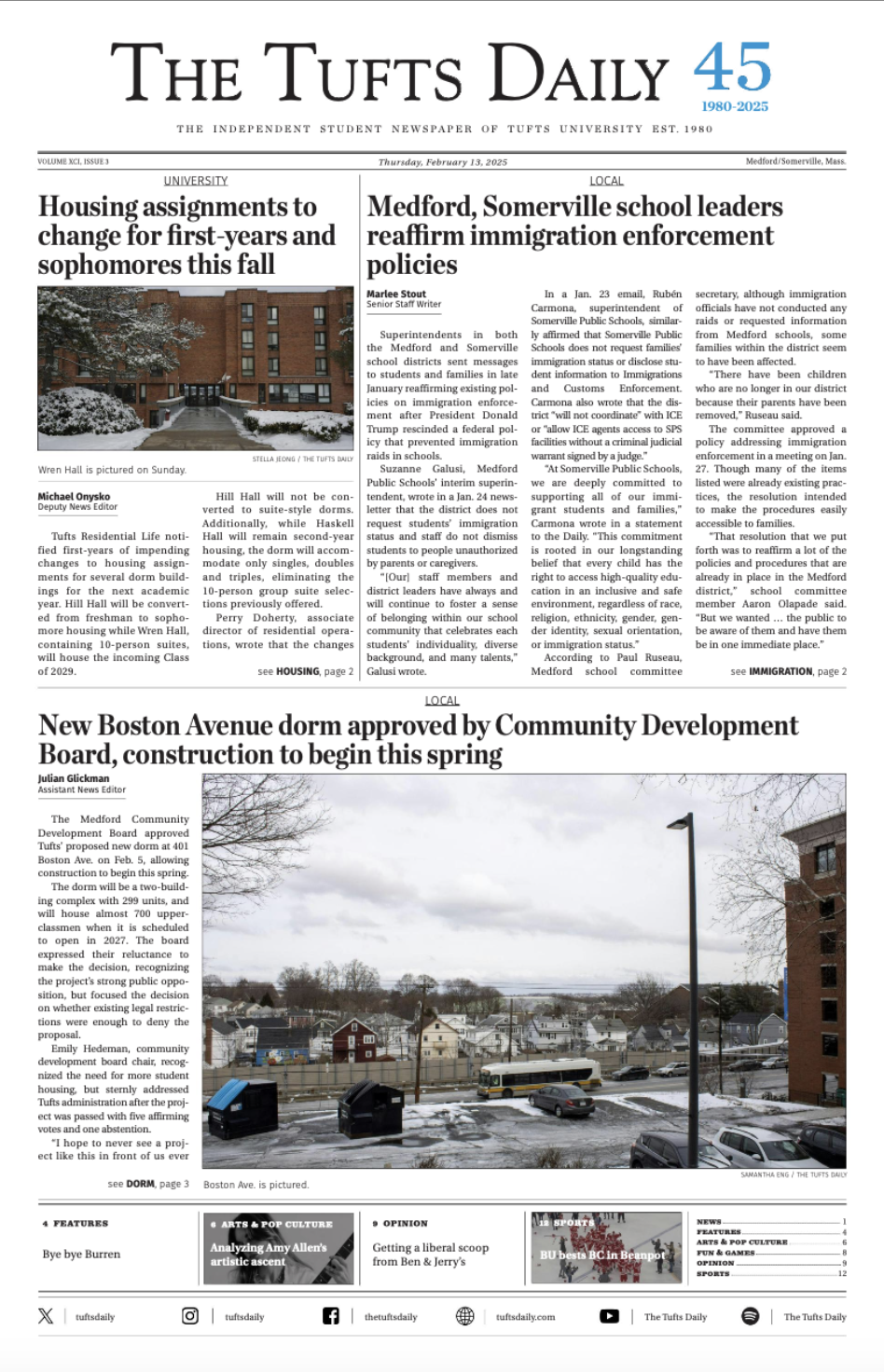Earlier this year, this writer lambasted the Rolling Stones' latest album for the band's doleful attempts to make their new work sound like the Stones' albums of yesteryear, for trying to relive the raucous abandon of their 20's as decrepit geriatrics and drug casualties.
On "Aerial," her first album in twelve years, 47-year-old British singer-songwriter Kate Bush shows her countrymen how an aging musician can continue to apply her particular gift decades after it was first unleashed.
For Bush's part, "Aerial," whose two discs are divided into chapters ("A Sea of Honey" and "A Sky of Honey"), is as lyrically sweeping, vocally expert, and viscerally poignant as any record of her 27-year career. Since her debut in 1978, she has proved that she can write about anything, and on "Aerial" - especially "A Sea of Honey" - she does.
Bush is serious on "Bertie," where she captures her immense love for her son. She (meekly) harangues perpetual dissatisfaction on ""King of the Mountain," where she asks, "Could you climb higher and higher? / Could you climb right over the top?" She portrays the utterly mundane, as in her depiction of homemaking on "Mrs. Bartolozzi," and the bizarre, like her ode to the many digits of pi on the aptly titled "Pi." (Yes, she actually sings "3.1415926535....")
But despite Bush's topical inconsistency, "Aerial" is a remarkably coherent album. Bush vocals, rich, textured and warm, link "Aerial's" songs in ways that her lyrical vision, at least superficially, does not. For example, despite their apparent thematic polarity, Bush imbues "Bertie" with the same lush, velvety sincerity as "Pi," suggesting that her beloved son, the infamous number, and everything in between are all part of the same larger entity.
At its core, "Aerial" is about Bush's life and the things that now comprise it. The Stones wanted to make the public (or themselves) think that they are still the same guys they were when their fans first fell in love with them. While it sounds simple, Kate Bush at 47 has accepted that she should not - indeed, cannot - write about the same things she did when she debuted as a teenager, or even her last record.
She can, however, still write the same way. Like the rest of her catalogue, "Aerial" is vocally masterful, personal, vivid and powerful. Given her personal achievements on this record, it is even more disappointing that the music buoying her vocals is so horrendous.
Whereas cool, young people could once get hooked on Kate Bush albums (Tori Amos worships her), if you're not already a fan of Bush's songwriting or really into contemporary adult music, you probably will not like this record. Faux trip-hop, laughably brooding keyboards, muted jazzy drums and saccharine production give "Aerial" all the musical sincerity and intimacy of a John Hughes film.
The bongo-ed percussion and oscillating strings of "An Architect's Dream" have all the richness and warmth of a dentist's office, perhaps the only place where they play that kind of music. The ill-advised, confounding mariachi jam of "Sunset" is so contrived and artificial that it makes the lyrically poetic and elaborate song one of the album's worst.
Too often on "Aerial," Bush weighs down her vocals with cheesy, meaningless music, keeping the album from meeting the standard suggested by her singing and songwriting.
When the music does properly complement the vocals, it's only when Bush is playing it. Her piano work, lonely and stately, is as complex and evocative as her vocals. On songs like "Mrs. Bartolozzi," Bush weaves her swirling piano melodies and voice into a singular sound, both human and inorganic, and the song benefits from the instrumentation.
This is, obviously, a testament to Bush's personal abilities. She plays the piano, sings and writes with the elegance and immeasurable skill we're used to. Still, perhaps more laudably, she embraces the natural progression of these skills on "Aerial," maintaining the essence of her past from the perspective of her present. If she didn't suck at picking a band, she could have had a remarkable record.





